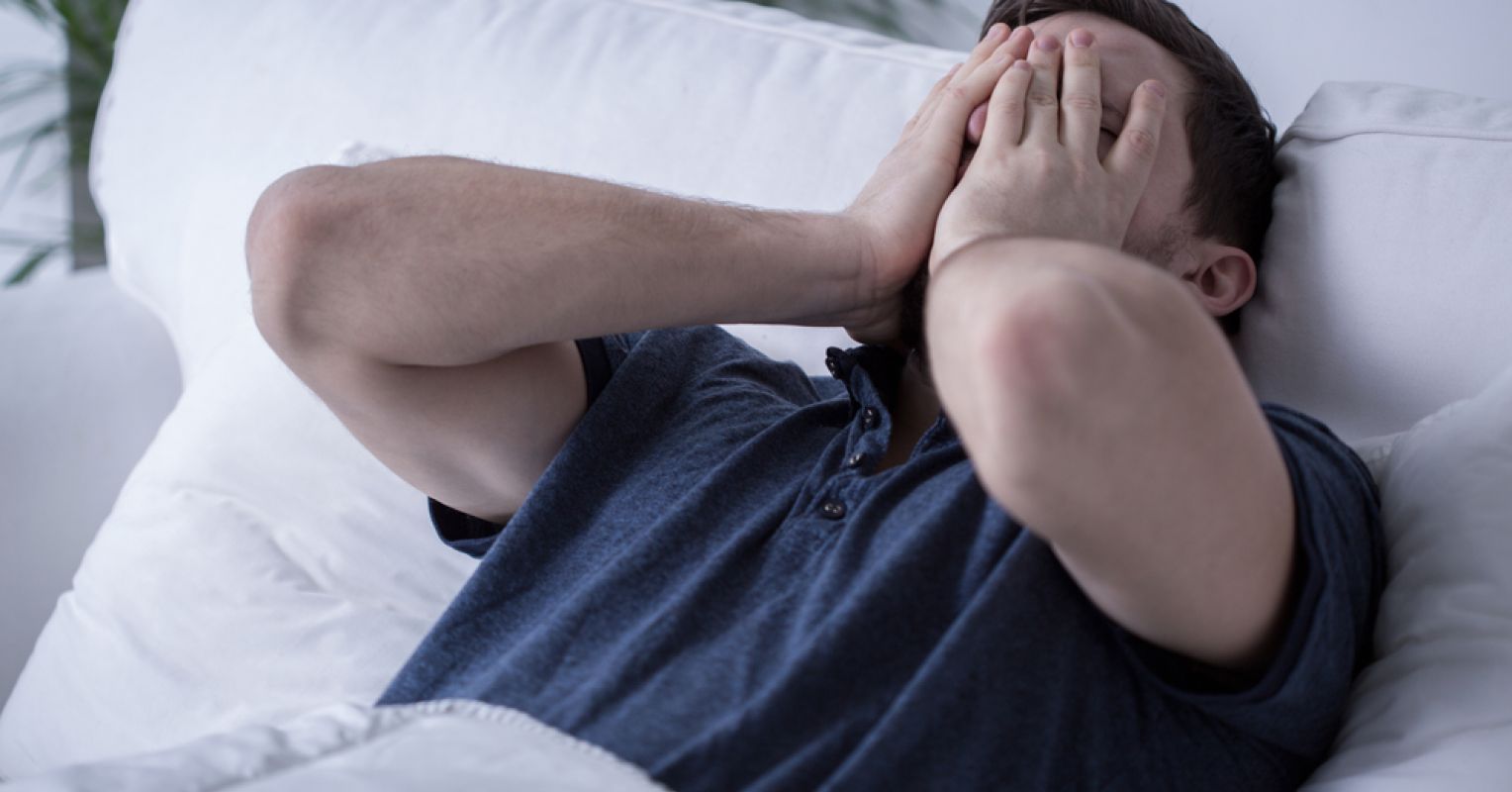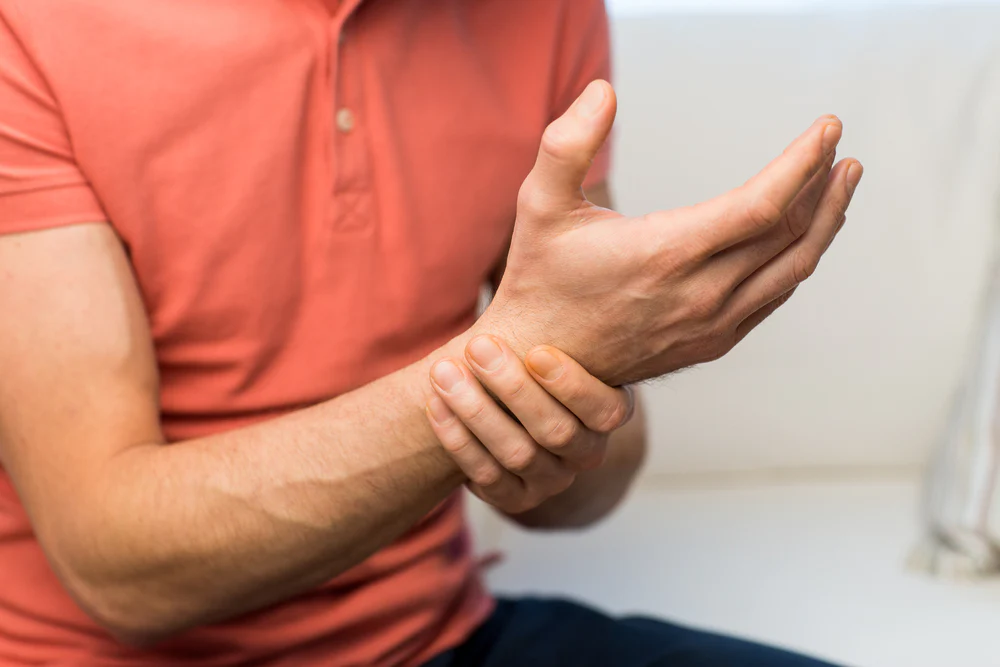Sleep Disorders and Conditions
Understanding Hypnic Jerks: What They Are and Why They Happen
In this blog, we’ll explore what hypnic jerks are, why they happen, and what you can do to manage them. Although they are a common occurrence, hypnic jerks can be startling, especially if they happen frequently. Understanding them can help you feel more at ease and get a better night’s sleep.
Have you ever experienced a sudden jolt while falling asleep? Perhaps you felt like you were falling from the sky and then suddenly jolted in bed as you got closer to the ground. If so, you may have experienced a hypnic jerk. Hypnic jerks, also known as sleep starts or hypnagogic jerks, are involuntary muscle contractions that occur as you are transitioning from wakefulness into sleep.
While these muscle twitches can be mild and go unnoticed, there are times when they can be intense enough to startle you awake. Along with the muscle spasms, you may also experience rapid breathing, a racing heartbeat, or dream-like situations of being startled, jumping, or falling.
What Causes Twitching While Sleeping?
Twitching or hypnic jerks are common occurrences during sleep. Although the exact reason for their occurrence is unclear, several explanations exist. Here are some of them:
Evolutionary Theory: One hypothesis suggests that these jerks are remnants of our primate ancestors who would tense up their muscles to brace for impact if they fell out of a tree while sleeping. As a result, the brain misinterprets relaxation as falling, and the jerks occur.
Electrical Misfiring: Another possible explanation is that the brain "misfires" electrically as we transition from wakefulness to sleep. Hypnic jerks usually occur when the muscles start to relax and we begin drifting off. During this period, motor areas of the brain may become stimulated spontaneously, and the brain may interpret this stimulation as wakefulness.
External Factors: Several external factors can contribute to hypnic jerks, including:
Exercising in the evening, which can make it difficult to relax when it's time to sleep.
Consuming stimulants like caffeine, nicotine, or certain medications, which disrupt sleep patterns.
Leading a high-stress lifestyle, which can keep the brain active as we try to fall asleep.
External sleep disruptions like loud noises, bright lights, or a partner working in bed next to us, which hinder our ability to cycle into deep sleep.
By understanding the potential causes of hypnic jerks, we can take steps to minimize their occurrence and improve the quality of our sleep.
How to Prevent Twitching During Sleep: Tips and Techniques
Hypnic jerks or sleep starts are common occurrences that happen as you fall asleep. If you experience nightly hypnic jerks and are worried about your sleep quality, there are a few things you can do to help prevent them. These tips and techniques may also help improve your overall sleep quality and duration:
Exercise Earlier in the Day
Regular physical activity is essential for good nighttime sleep, but avoid exercising too close to bedtime.
Stop moderate-intensity exercise at least 90 minutes before your pre-sleep routine.
This will allow your body temperature and endorphins to return to levels that are conducive to sleeping.
Limit Caffeine and Alcohol
Reduce your intake of caffeine and alcohol after midday to lessen restlessness and jitters.
Having too much before bed can increase the frequency of hypnic jerks.
Establish a Sleep Schedule and Bedtime Routine
Maintain a regular sleep schedule and bedtime routine to help your body know when it's time for bed.
Prepare for sleep by dimming the lights and doing relaxing activities such as reading or breathing exercises.
Reduce External Sleep Distractions and Stressors
Stress and anxiety can disrupt sleep and worsen hypnic jerks.
Reduce stress through mindfulness meditation, breathing techniques, and progressive muscle relaxation.
External sleep distractions like bright lights, noise, or temperature fluctuations can also hinder sleep quality.
Use sleep masks, curtains, and earplugs to reduce the impact of external factors.
Remember that hypnic jerks are generally not serious and don't usually cause complications. However, if you experience them regularly and feel concerned or anxious, talk to your healthcare provider for guidance on how to improve your sleep quality. By incorporating these tips and techniques into your daily routine, you may be able to prevent or reduce the frequency of hypnic jerks and improve your overall sleep quality.
Sleep Disorders and Conditions
Sleepless in Psychiatry: Unraveling the Role of Sleep in Neuropsychiatric Illnesses
Sleep Disorders and Conditions
When Sleep Disorders Clock In: Insomnia’s Impact on Productivity of Young Adults
Sleep Disorders and Conditions
Why Does My Body Twitch When I Sleep
Sleep Disorders and Conditions
Hypnic Jerk: Why Do I Twitch in My Sleep?
Sleep Disorders and Conditions
When your Arm Falls Asleep: Causes and Treatments
Sleep Disorders and Conditions







